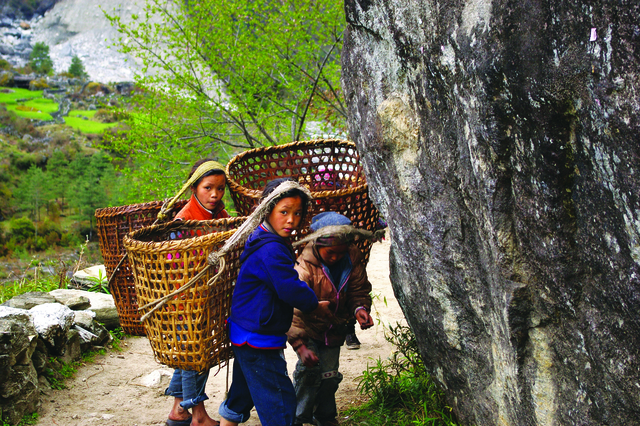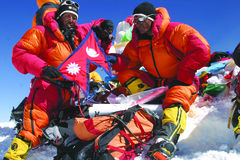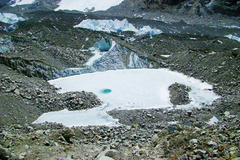What Next for Mount Everest? Climate Change, Tourism Threaten the Himalaya
June 10, 2009 (PRLEAP.COM) Entertainment News
New York, NY - Returning to the US last week after his record-breaking nineteenth summit of Mount Everest, expert climber Apa Sherpa confirmed that climate change has, in fact, had a measurable impact on the mountain. He announced that many passages once covered with snow and ice are now barren rock. "This makes climbing the mountain difficult because walking on naked rocks wearing crampons is hard," he told Reuters.The changing landscape affects not only climbers but also the Sherpa, the people who live on the mountain. Although they receive little press, the Sherpa often serve as guides and porters for climbing teams, since living in the mountains has made their bodies uniquely adapted to high altitudes and harsh climates. Without the help of Sherpa guides and porters, it is nearly impossible for most climbers to make the ascent up Mount Everest.
In her newest children's book, Sacred Mountain: Everest (Lee & Low, 2009), author Christine Taylor-Butler explains how climate change, deforestation, and pollution are affecting the Sherpa. Rising temperatures have caused glaciers in the Himalaya to begin to melt, putting Sherpa villages at risk for flooding. Increased tourism has put a greater demand on resources, resulting in deforestation and threatening the habitats of native plants and animals. Climbers have left a trail of litter and waste on Everest, contaminating the water supply. "Mount Everest's popularity comes with a terrible price," Taylor-Butler says.
As the Sherpa have guided climbers for decades, they can also serve as guides in their treatment of the earth. "As Buddhists, the Sherpa believe all life is sacred," Taylor-Butler writes in her book. "They live in harmony with the natural world… . Even the act of cutting down a tree must be done with care." Although tourists have not always mirrored this philosophy, local organizations and new environmental laws now protect many of the area's most delicate natural habitats.
The Sherpa may be Mount Everest's caretakers, but ultimately the fate of the mountain rests in the hands of the worldwide community. As Apa Sherpa said upon his return from his latest climb, "There is only one Sagarmatha [Everest] which is the heritage of the entire world. We must maintain it and keep it clean."
Note to Editors: Author Christine Taylor-Butler has written more than forty books for children, including biographies, state histories, and several science and fiction series. Sacred Mountain: Everest, her most recent title, was released in May 2009. Taylor-Butler lives in Kansas City, Missouri, with her husband and daughters.



